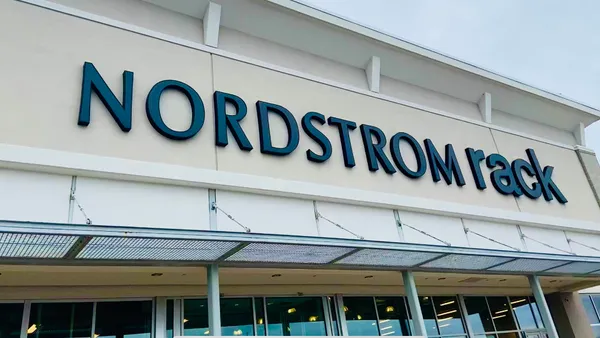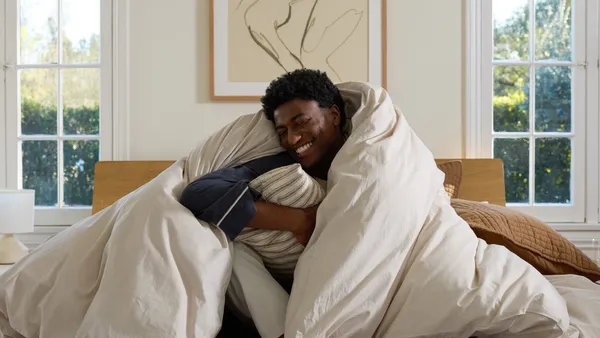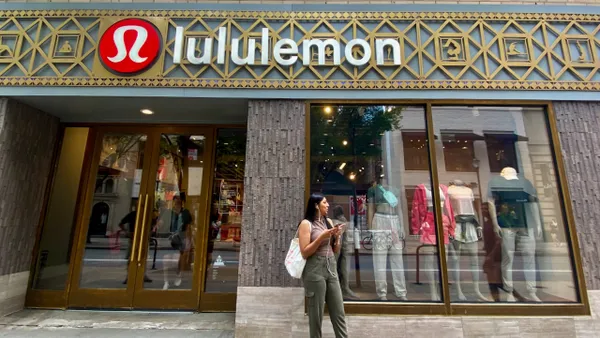Dive Brief:
-
Express expanded its "Community Commerce" program nationwide, naming influencer Rachel Zoe its lead style editor, the apparel retailer said in a Thursday press release.
-
The program, first piloted in July, enlists fashion influencers and micro-influencers to "style, sell and earn commission on specially designed seasonal collections." Express also provides these "Express Style Editors" with "product information and education, personal coaching and ongoing mentorship."
-
The retailer said the effort will help it reach its goal of $1 billion in e-commerce sales by 2024, by helping drive digital revenue and acquire and engage new customers.
Dive Insight:
Apparel retailers are mostly in recovery mode in 2021, after a protracted pandemic-induced slump last year when their stores were forced shut and demand practically disappeared. Express, already struggling before that, is benefiting as consumers once again buy new clothes. But it's also taking some steps that could continue its own recovery after that rebound fades.
Express, once part of The Limited (later L Brands) portfolio, is a mostly mall-based retailer grappling with the decline of the mall amid slowing apparel sales. Their slice of the market has been somewhere between ultra-casual Gap and designer Armani, clothes nice for work, hanging out with friends, going out to dinner, according to Lee Peterson, executive vice president of thought leadership and marketing at WD Partners.
"If you think about it, all the boxes that were checked in their niche got kind of unchecked in the pandemic," he said by phone. "So the fact that they're actually able to pivot and do as well as they are doing bodes well."
In its second quarter, Express sales soared 86% year over year and the retailer swung to a profit, as executives noted an earlier-than-expected return to positive EBITDA. Their experimentation with smaller, neighborhood-based "Express Edit" stores and their Community Commerce effort both reflect the kind of nimble thinking often found in the tech world, Peterson said. The mentality is at least as important as actual tech, which some experts say can be overvalued in retail. Welcoming input from the virtual streets is savvy at a time when young people are gravitating to secondhand shopping and don't want sameness, according to Peterson.
"They act on good ideas, which is, you know, kind of the dot-com bible, right?" he said. "What this tells me is they're informing themselves, they're saying 'Help us figure this thing out — What is in style right now?' Because [when a consumer] shops purely vintage, that doesn't help them. They're not learning anything."













